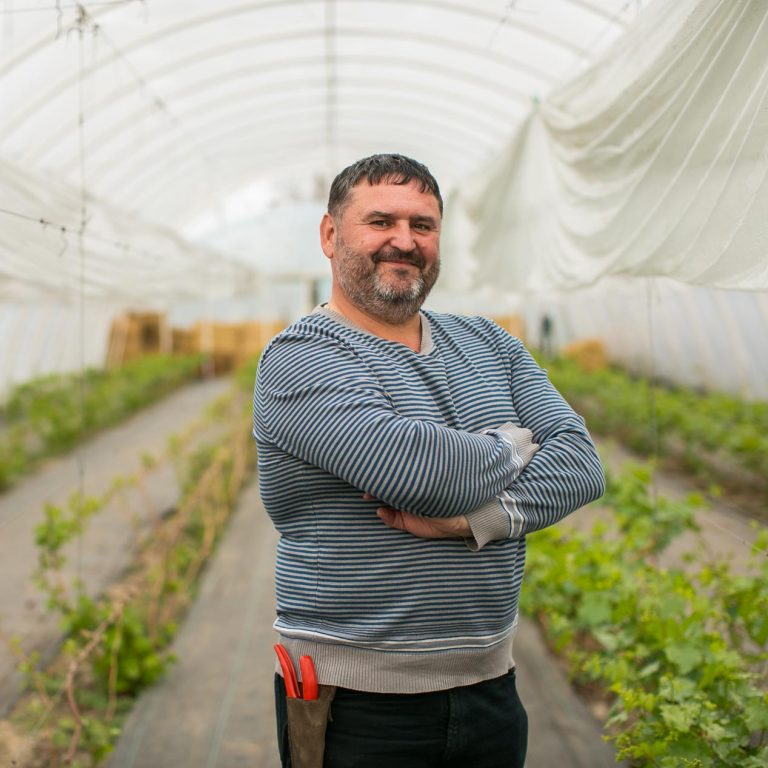Grape is intrinsic to the place. It is believed that Tavria hosts the best vineyards in Ukraine. This place is blessed with sun and fertile soil.
Albert Fedotov, a farmer from the city of Oleshky, grows grape, collects different varieties and feels that viticulture is his whole life. His father used to grow grape, and eventually, Albert found himself here too. He cherishes this whole business and tries to nurture it. This is what he lives now.
For almost 10 years now Albers is engaged in viticulture. Previously, he worked in sales, holding the post of Marketing director in a firm. Though, even then he collected different grape varieties and cultivated some for personal use. Now he is devoted to his dream job.
— Freedom is what every man wants. Freedom to do what you want. Wake up with a pleasant anticipation of doing the thing you love.

Albert remembers the days when his dad has grown up to 70 varieties of grape, which was a significant collection back in Soviet times.
Albert’s collection currently contains more than a hundred varieties. Grape gives dozens of new varieties every year, and they don’t always fit a greenhouse, which is why the man implants new varieties in the old bushes. This is the way you can get the best grape, Albert says.
Leading position in the number of bushes in Albert’s collection holds the Triyka Kraynova variety with the oblong rose berries. It is also known as Preobrazhennia, or Yuviley Novocherkaska, or also Viktor.
Every year the number of the grape varieties received by plant breeding grows. Viticulturists and scientists create the best plant samples with most massive bunches and larger berries. Ampelography is a science concerned with the grapevines.
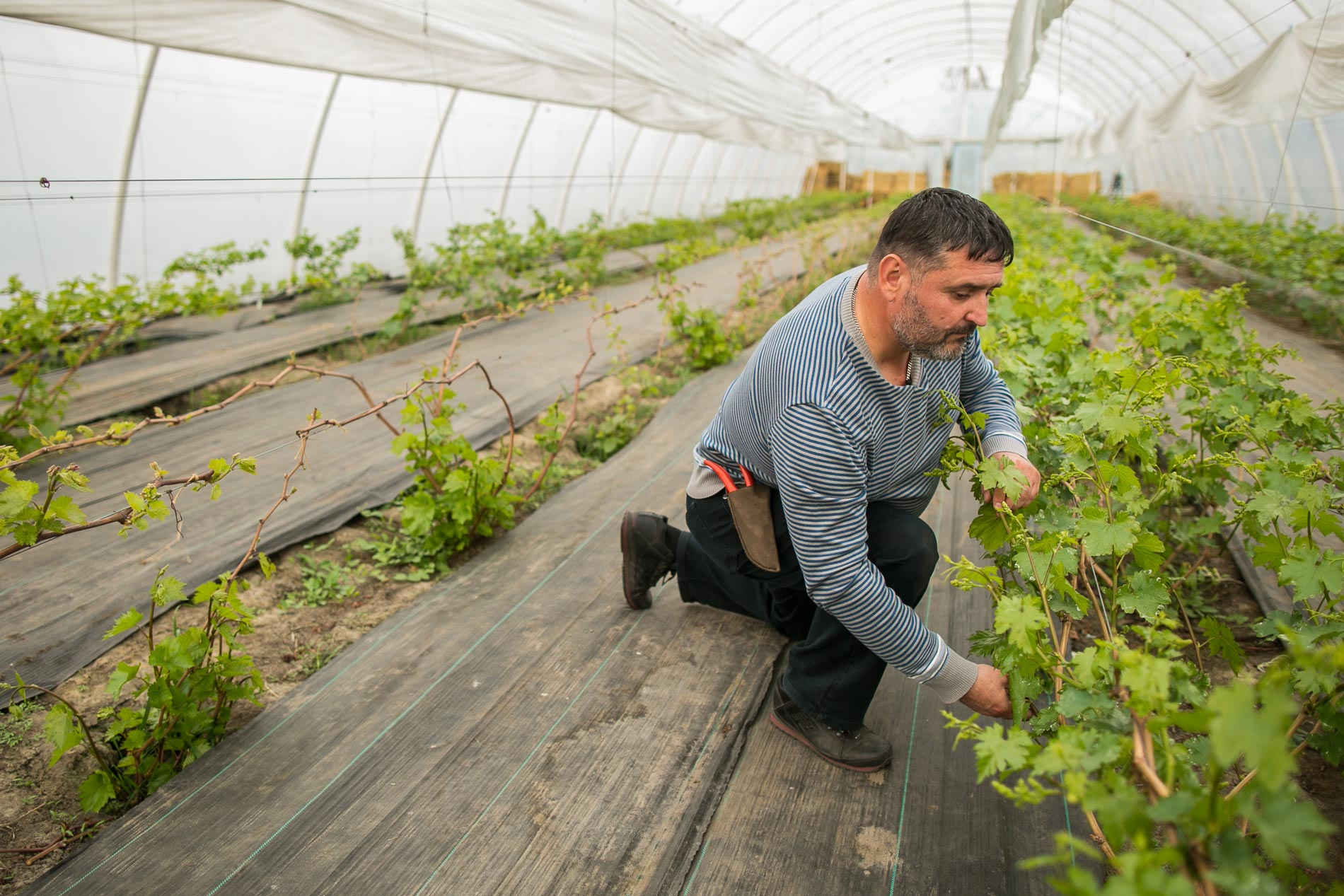
Albert himself has never developed his own varieties. He is not even planning to. Says, it is a completely different type of work he is not really fond of.
About 800 of grape bushes dwells in his greenhouse. Moreover, he has bushes on his backyard plot as well.
In mid-July Albert usually has the first crop. Those grape growing beneath the sun ripen by the end of July or the beginning of August.
Despite the fact, the plants grow in the greenhouse, they give a yield just once a year. Only a few varieties can give a yield twice a year. Viticulturists call such a phenomenon a ‘stepchild crop’. As Albert explains, a vine has these additional little shoots which then also have bunches. These bunches ripen one or one and a half months later, but they pull out the energy out of the plant, the man says. That is why he usually removes such shoots, to make the first crop of a higher quality.
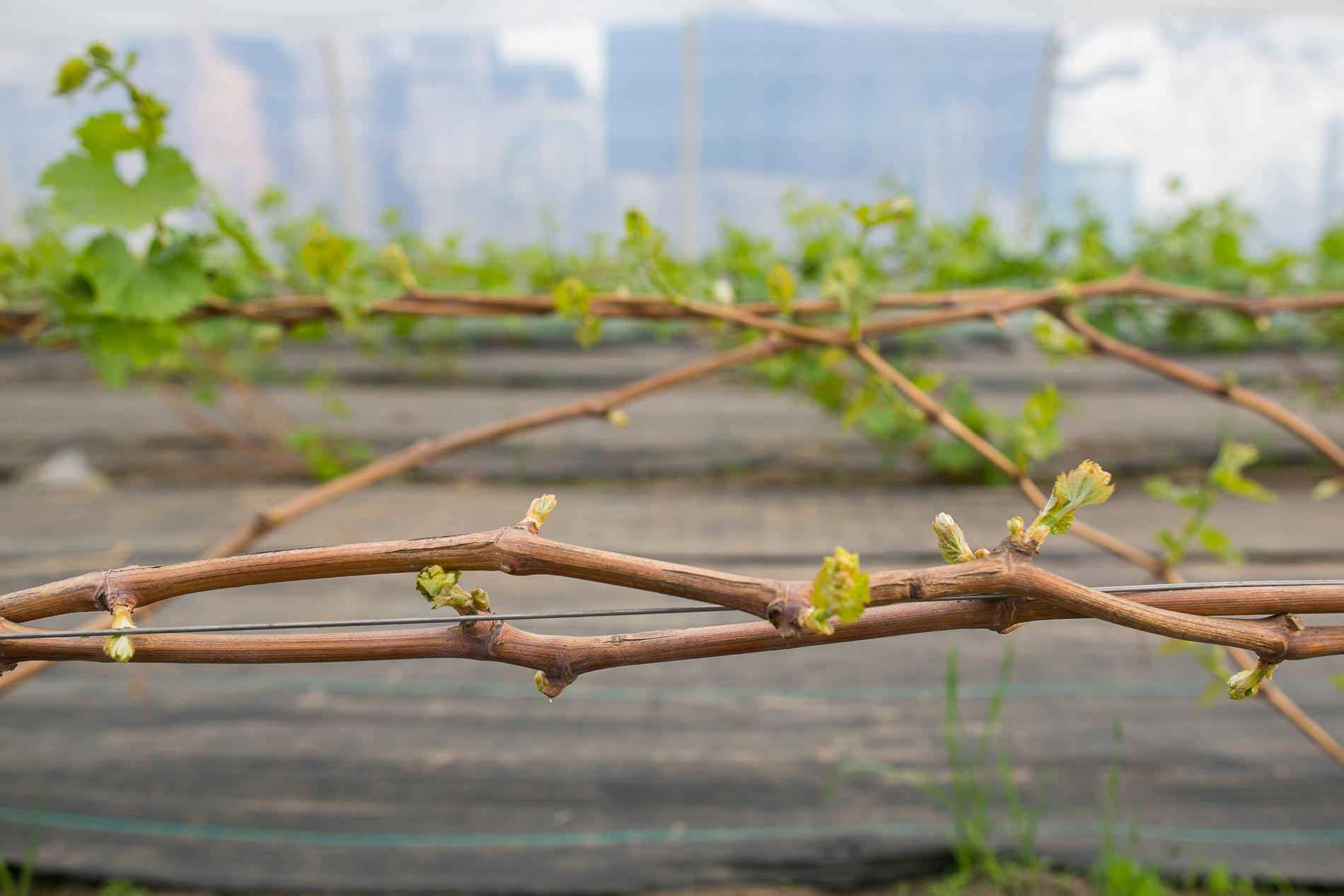
The shoots are removed a few times in the spring. Specifically, those growing from below. Albert says that one bud can give two to three shoots, and only one of them should be left, the strongest one. During the spring the man ultimately decides which shoots are to be left. Bushes are thinned out in such a way. This is an extremely responsible thing to do, and every farmer prefers to do it on his own.
Some decry: “What are you doing? This is your harvest!”. But you will not actually have your harvest if there is too much. It will all be small and tiny. I cannot give my ‘child’ in the wrong hands, they will screw it all. Last year I had a modest crop, therefore I was on it myself. As long as there is something to harvest! As long as there is something to harvest!
Sometimes Albert’s son assists him. However, he also has his job and study, so there is not always a possibility to help father.
The happiest moment for Albert is when the crop is ripe. One young bush can give 10 to 50 kilograms of grape. All depends on the plant’s surrounding conditions. If you want to make a profit from the grapevine, but you don’t own a sizable land, you will need a greenhouse.
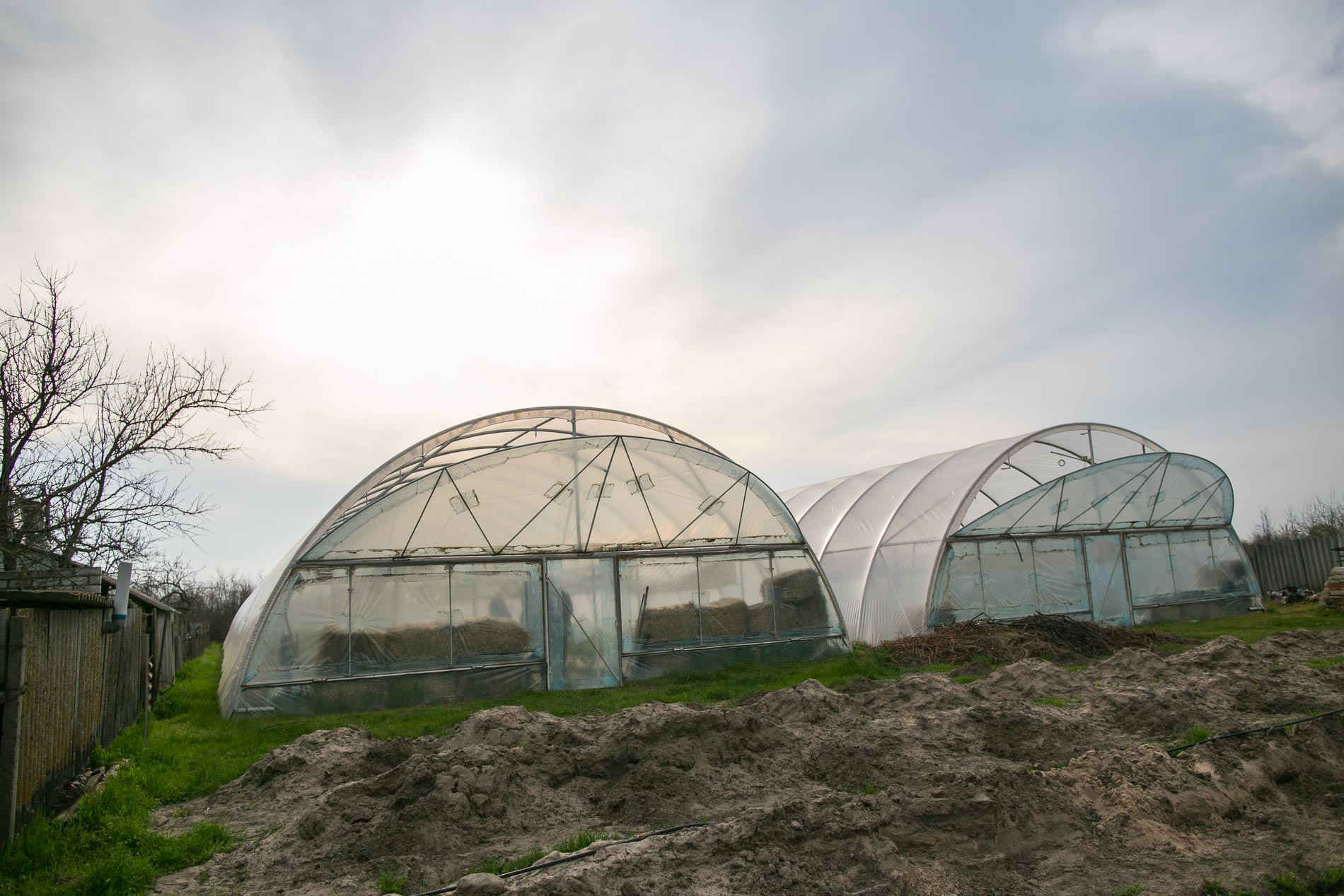
Greenhouse
The viticulturist grows shoots for almost three years under the hothouse conditions. This was done for a purely economic profit. As the grape gets ripe faster, Albert says, price consequently grows higher for such a product. In fact, it is a lot easier to look after the plants.
— The berry, the bunch, they are perfect in the greenhouse! Neither rain nor wind threatens them, not a bird or an insect. A lot less plant disease.
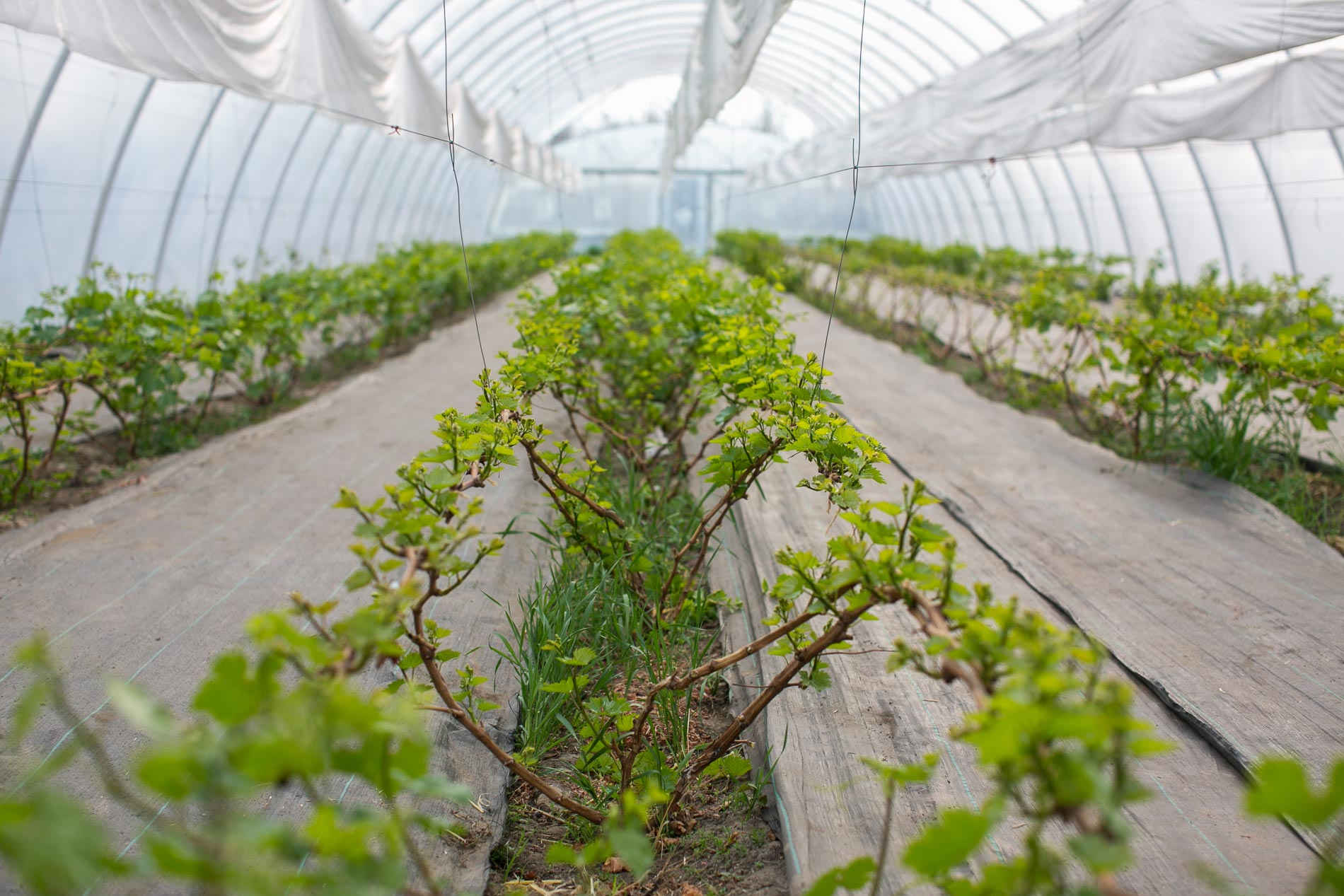
However, not a step without chemicals nowadays, the man says. He tries to use biopreparations, special bacteria and advanced technologies to improve the soil at a molecular level.
Albert shares a formerly strong desire to grow the grape ‘dome-free’. But it appeared that the land was too small, which is actually why the man decided to put up a greenhouse.
— Some say once you have built a greenhouse you might as well go and sleep on a couch while the bunches pop up. Nuh-uh! There is much more work to do than you could possibly imagine because the grape wakes earlier and it catches all the frost.
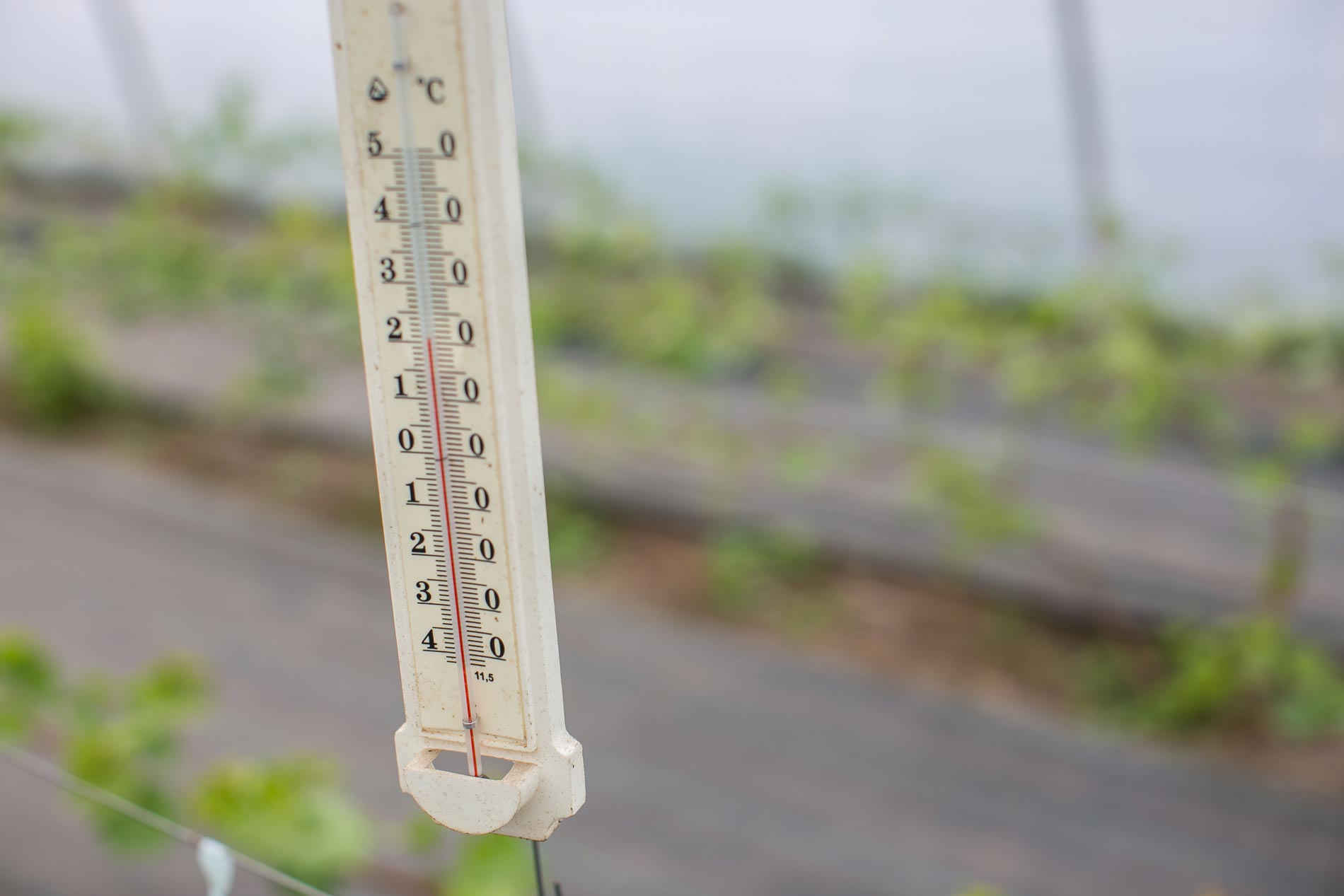
During the wintertime, the temperature inside and outside of the greenhouse differs in 1–2 °C. Heating a 4,5 m high room is expensive.
To keep the plants safe from frost Albert insulates the room with a special film. He says it might help increase the temperature by 2 degrees.
The reason why the greenhouses are built that high is to make plants feel well in summer. Thanks to the high ceilings the sun rays do not burn the upper shoots, which may reach 2,5 m height. Additional footage keeps the plants safe from hot air.
As Albert explains, each development phase requires specific climatic conditions. In order to keep the air humidity and temperature levels adequate during the different time of the year, the viticulturist uses a digital thermometer.
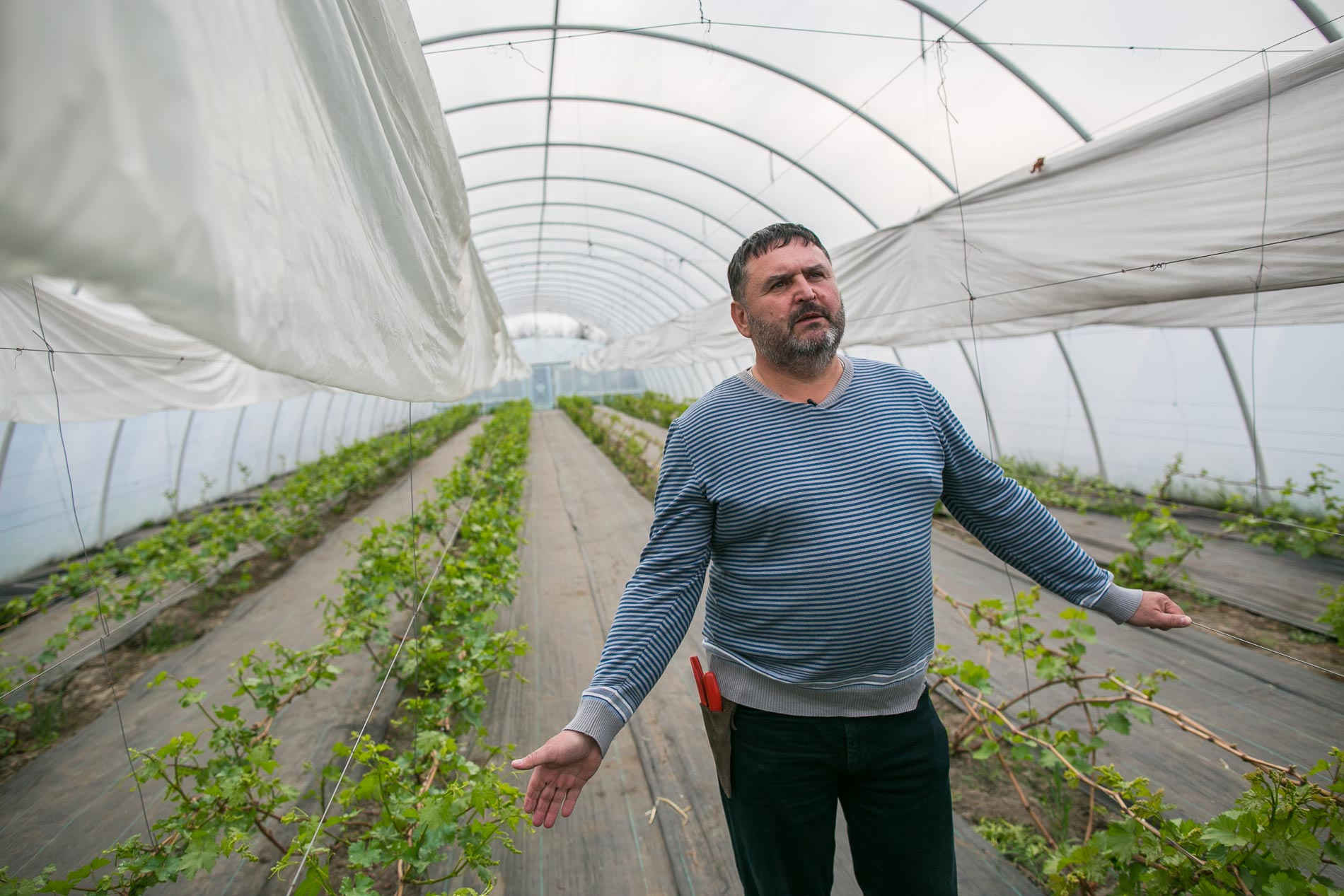
Viticulture takes a lot of attention, energy and time, the man says. Most of all, it is the lack of time.
— When you work with a plant you do not have a right to yell, swear, rush or forget something. Because in a single day there is frost. Once you overslept, snoozed — and that is it, a year of your hard work is gone. So, there is no time for minutia, no time to say ‘I’ll do it tomorrow.’ If it has to be done today, you do it today!
Albert says, that to make a profit of the viticulture you need to work for at least three-four years. To have money for investment in his passion the viticulturist has sold his car.
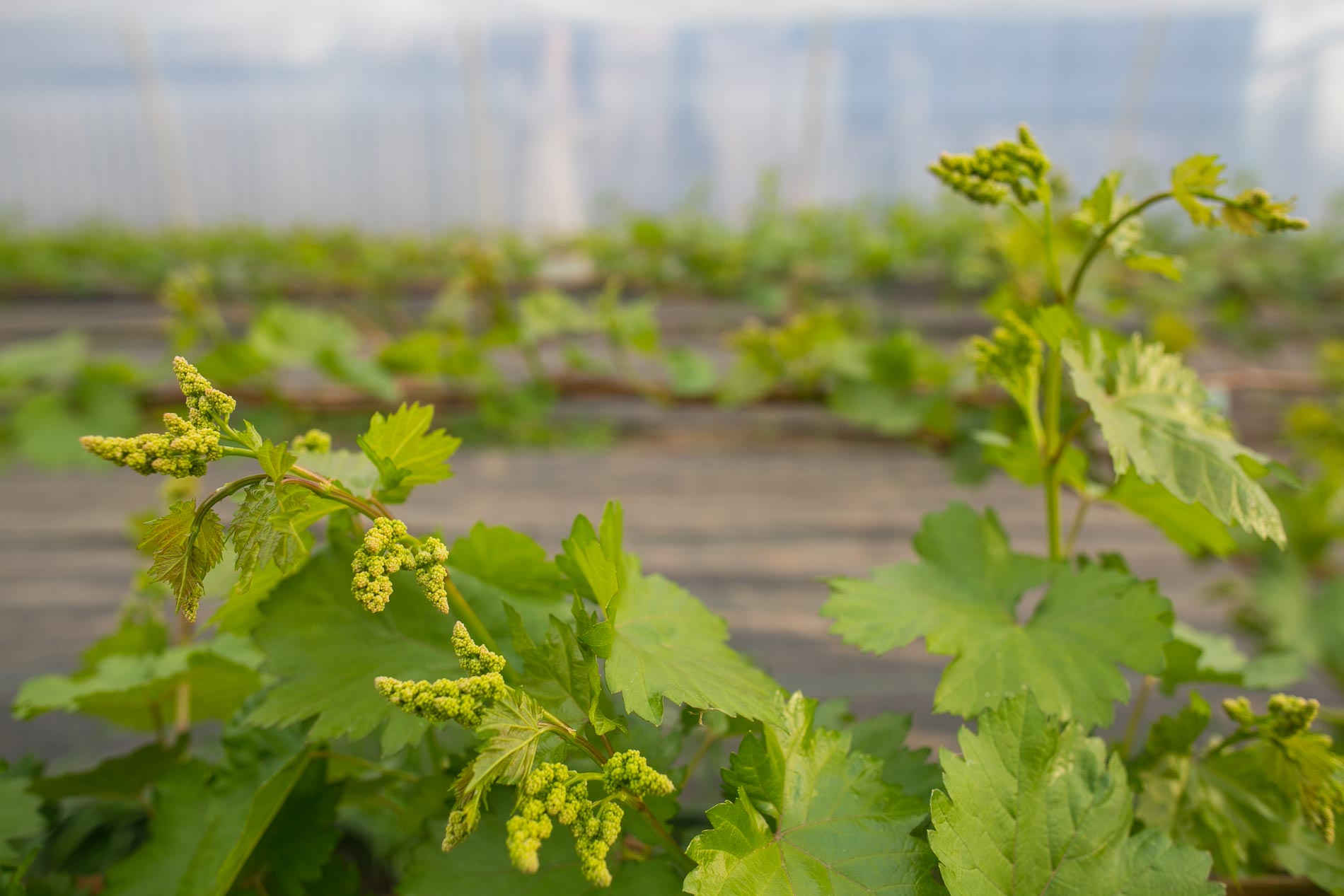
Albert’s family actively encourages and helps him move forward with the grape. The man admits, that their help is a fundamentally important thing as it is ‘the key’.
Potentially, Albert plans to increase his vineyard. He says it is harder if one grows plants in a greenhouse, as to build such a fruit conservatory you will need a specific material. Moreover, you will need means for chemicals, fertilizer, drip irrigation and so on.
This year Albert starts working at another greenhouse. He has already planted a few varieties of grape there, namely the ‘Pamiati Vchytelia’, ‘Veliz’ and others.
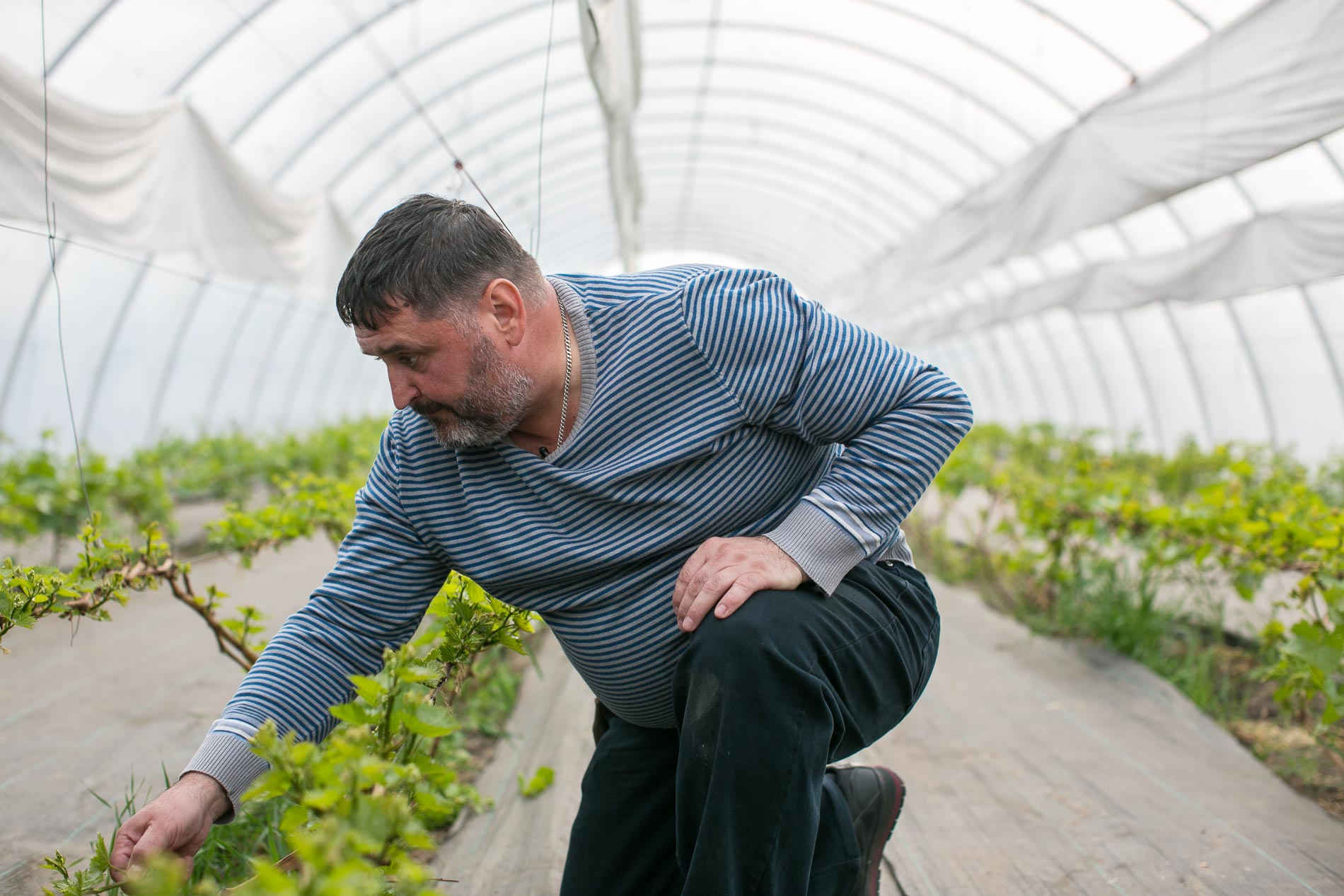
It is a grape fever
As the grape grows faster in greenhouses, the price is corresponding. The best deal in such conditions is a wholesale, since the locals cannot afford a retail price.
Tavria is a very prolific land, which makes it easier to establish market relations. Albert tells about a number of the wholesale markets, and they are always happy to cooperate.
Grape from Tavria is usually brought to Kyiv, Dnipro and other big cities of Ukraine. Albert does not sell abroad yet. He says it requires larger amounts of production. The man actually considers cooperation with other viticulturists, say, it is the best way to ensure production distribution.
In Soviet times the viticulture has experienced a significant decline. When Mykhaylo Horbachov imposed prohibition, the vineyards were all cut down. The industry was in decline further in the 90s and 2000s. That was not the best time for grape, raisin and vine. Meanwhile, the industry now reborn little by little.
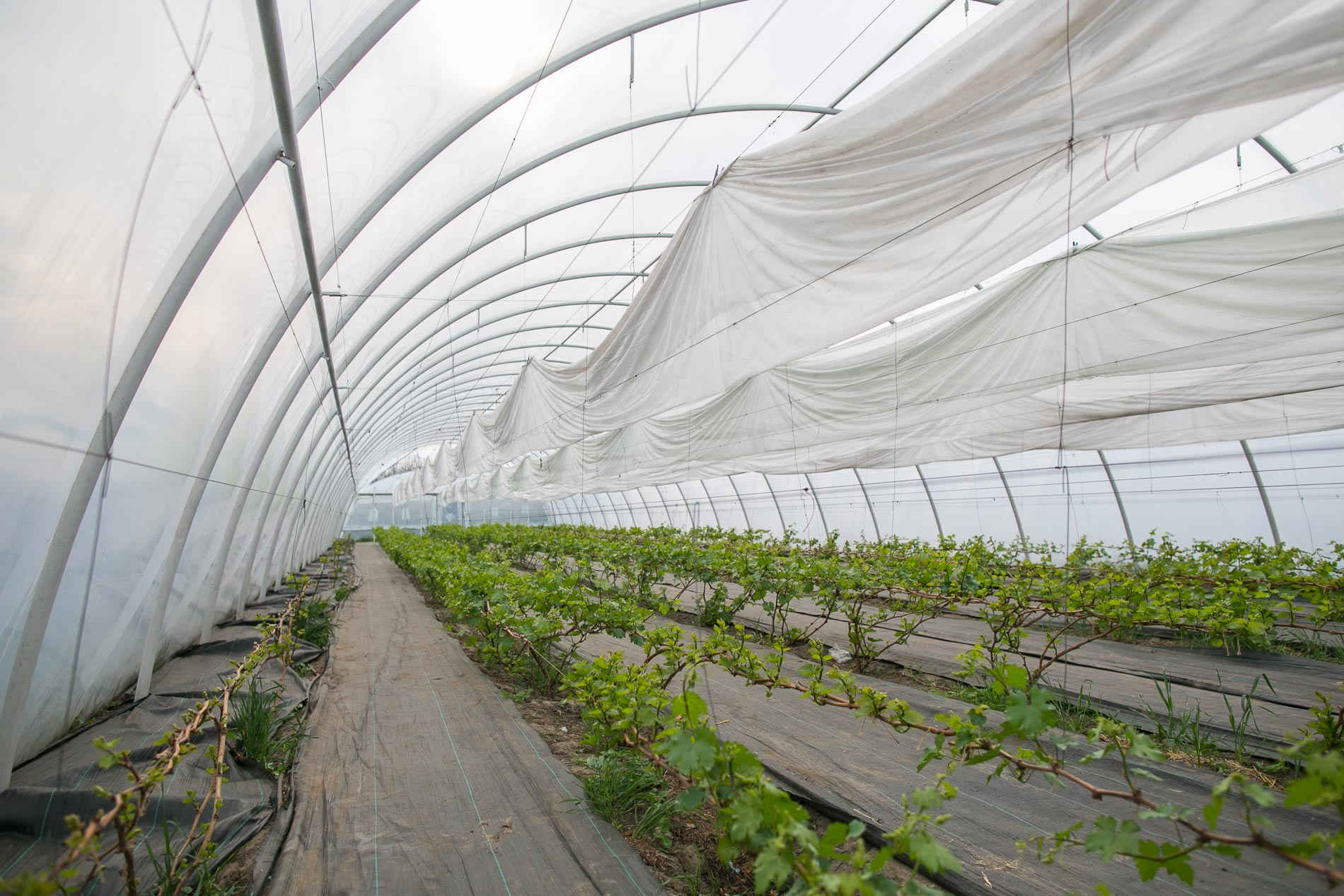
Albert tells that lots of people in the region grow grape now. Very few of them are professionals, most of them grow grape for households. If not at home in the back, then on household plots at the dacha.
The man says that he did not even have a clue on how many people do this before he started growing grape himself. Today he tries to adopt experience from his colleagues.
— Every year there is something new, something new coming up. Did not do this — okay now! Now I know how to do it correctly. All right, wrote there ‘Hey guys, fellas, what do I do?’. People, viticulturists, they are very generous in giving a hand, a thank you, sharing information and experience. So there, we help each other.
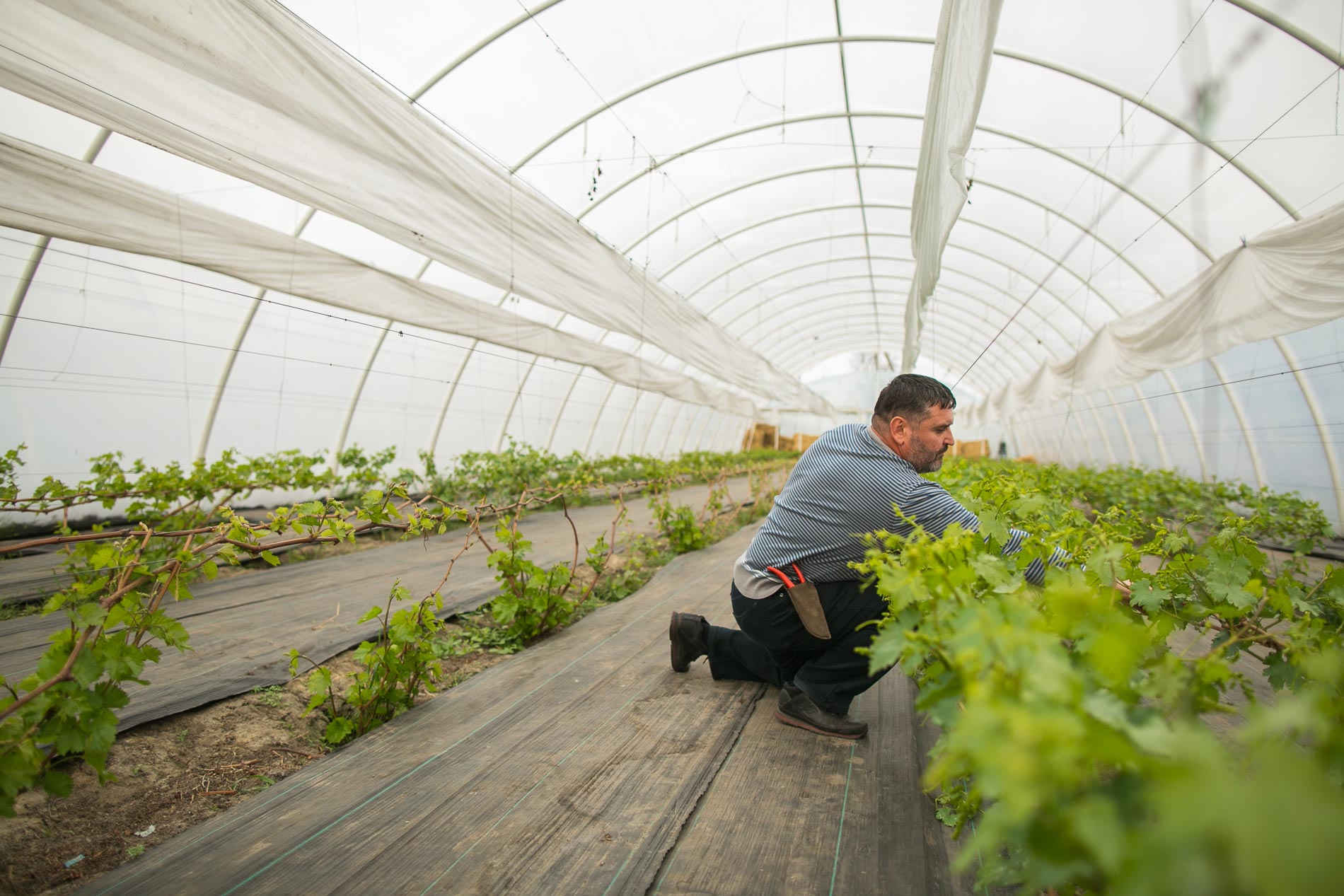
Albert says that viticulturists frequently communicate. The man has good colleagues in and outside of Ukraine, they communicate through social networks as well to keep in touch. Albert chuckles, viticulturists are ‘birds of a feather’, they recognize each other:
— We call ourselves sick people, and others call us viticulturists sick too. Well, that is it, that is true. But it is a grape fever. Once you have got it you are done, spending all the money for new varieties. If you only knew how much those cost! My wife does not! All the time, all the energy.
Albert tells about learning from the experience of Mykhaylo Pavlivskii, one of the first Kherson viticulturists to grow grape in a greenhouse. These days Mykhaylo has a huge farm along the Kakhovske reservoir where he grows more than 150 grape varieties. Mykhaylo used to travel a lot to emulate the experience and achieve a high level of professionalism.
Albert also grows expensive varieties saplings to sell. The vine stays, and the man feels bad throwing away the unnecessary saplings. However, it makes almost no profit.
Apart from that, Albert makes wine for his family. He has a small dedicated plantation with a collection of wine varieties specifically for the case.
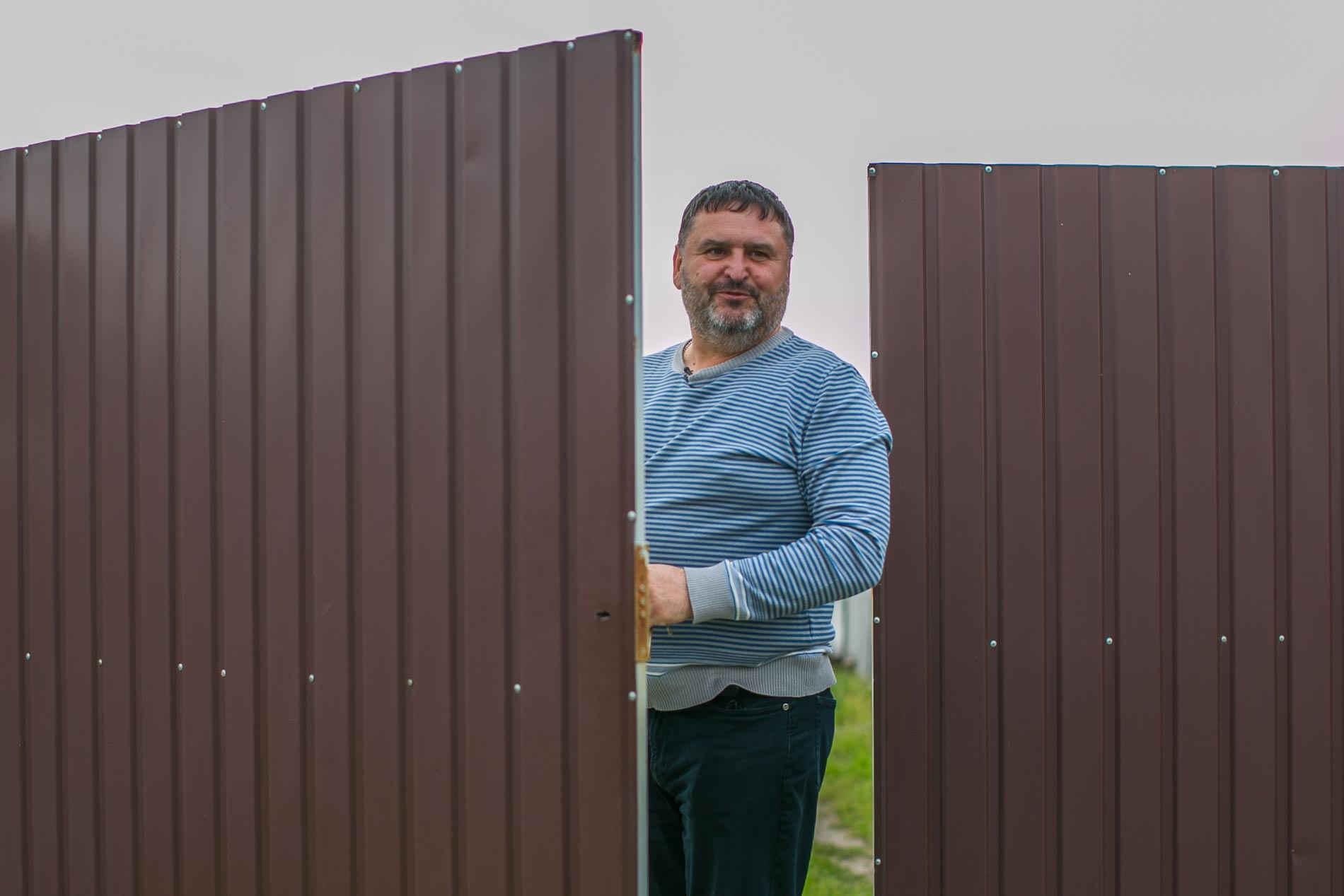
Albert considers viticulture a labour of love. It brings him joy and revenue. He says he always dreamt to grow grape as Tavria is perfectly tailored for it:
— Because the grape is a culture of this place. It varies from one vineyard to another, one is good and the other is absolutely different. Which is why you need to plant it first and see it yourself, no matter how praised it was. This is the only way. For this reason, a viticulturist has to go through each and every variety he wants plant in his own way.
— Well, because you oughta do something unpopular. And I know the expression which says that you have to go the toughest way. And you can have there even more than just an income. Once again, I love grape!

